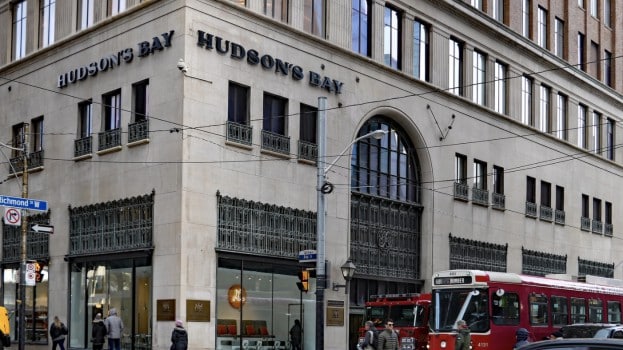A Pennsylvania court will not toss out the trade secret misappropriation claims that Le Tote lodged against Urban Outfitters for allegedly gaining access to an array of valuable information under the guise of a potential acquisition, and then abandoning the M&A talks and launching a copycat rental service of its own to “compete directly with Le Tote,” using that “stolen” info. In an order and corresponding memo dated June 24, Judge Petrese Tucker of the U.S. District Court for the Eastern District of Pennsylvania sided with Le Tote, holding that it “appropriately pled a claim for misappropriation of trade secrets under both the federal Defend Trade Secrets Act and its Pennsylvania state law analogue,” despite Urban Outfitters’s argument that the 9-year-old fashion rental company failed to make its case.
In the motion to dismiss that it filed last year, Urban Outfitters (“Urban”) argued that Le Tote’s trade secret misappropriation claims should be dismissed because the San Francisco-based rental company: “(1) [did not] specify which information Urban received that constitutes a trade secret; (2) did not establish measures to protect the disclosed trade secret information; (3) [failed to show] the independent value derived from the information’s continued secrecy; and (4) [did not establish] how the information was misappropriated and used by the clothing retailer” to launch its own rental businesses, Nuuly.
Urban also argued that “in waiting two years to sue over the evaporated acquisition deal,” Le Tote’s lawsuit is merely an attempt by the company to find “a scapegoat to distract from its broader economic troubles, driven by an ill-fated acquisition of Lord & Taylor, and exemplified by a bankruptcy filing made weeks after the filing of the complaint in this action.”
Reflecting on Urban’s arguments, as well as Le Tote’s opposition to the retailer’s motion to dismiss, Judge Tucker held that Le Tote did, in fact, met the necessary standards for defining the trade secrets at issue and took appropriate steps to protect them.
Broadly defined as “all forms and types of financial, business, scientific, technical, economic, or engineering information,” the court stated that “Le Tote’s customer-facing website, fit engine, style recommendation tool, dynamic pricing engine, and the warehouse management software and control systems that enable Le Tote to track and manage its inventory and reverse infrastructure systems,” which the company made available to Urban to view fall within the bounds of the definition of trade secrets under the federal Defend Trade Secrets Act (“DTSA”) and the Pennsylvania Uniform Trade Secrets Act (“PUTSA”).
Beyond that, “Information about the company’s use of inventory and customer feedback, and a detailed product roadmap reflecting data that had been compiled from years of customer insights,” among other internal consumer data” that Le Tote gave Urban’s “key executives” access to, also “would all easily fit within the DTSA’s statutory definition,” according to the court, particularly given that the general consensus among various courts, as well as the Third Circuit, that at this stage, a party “need not describe trade secrets with particularity.”
In terms of Le Tote’s efforts to safeguard its trade secrets, which is “a key element of making a proper trade secret claim” under the DTSA and PUTSA, the court held that Le Tote met its burden by requiring that all employees sign a “Proprietary Information and Inventions Agreement that prohibits them from disclosing its proprietary information; not disclosing proprietary information to outside consultants or vendors without confidentiality agreements, and requiring investors – and prospective parties to M&A deals, such as Urban – to sign non-disclosure agreements (“NDA”) before gaining access to any secret information.
The court determined that these efforts, among others, amounted to “reasonable means of maintaining the secrecy of the disputed information,” and that Le Tote also established that such information – including the “detailed resources needed to operate a fashion rental subscription business” – has “economic value.”
Finally, in terms of Urban’s alleged misappropriation of Le Tote’s trade secrets, Judge Tucker found that Le Tote made its case in this regard, as well, as it sets out “a sequence of facts that could lead to an inference of misappropriation.” Namely, Le Tote points to “statements by [Urban] that it could not organically start a business of the kind that [Le Tote] ran; a launch of the competing business by [Urban] a mere month after shutting down the proposed transaction; using the precise kinds of ‘proprietary’ systems at issue in the suit; and attaining equivalent market success to [Le Tote] in a quarter of the time.”
“More pointedly,” the court states that Le Tote also alleged that “information [Urban] requested” in connection with the parties’ M&A discussions “was inconsistent with standard acquisition behavior; and the executives involved in launching [Urban’s] competing project were the very same executives that evaluated [Le Tote’s] business for the supposed transaction.”
In showing that Urban had access to its “important, nonpublic competitive information,” and that it subsequently created “a near-identical competing product,” the court determined that Le Tote has, in fact, appropriately alleged misappropriation, and thus, refused to dismiss its federal and state law claims.
At the same time, the court held that Le Tote also made a plausible claim for breach of contract on the basis that Urban used its proprietary information to launch Nuuly, thereby, running afoul of the NDA it signed. While that NDA did not “bind either side to an ultimate deal or have an exclusivity provision barring the consideration of alternative deals” and also did not “prohibit either company from subsequently offering a competing product,” it did require that Urban “only use Le Tote’s confidential information to evaluate the company for a possible investment,” a term that Le Tote alleges that Urban breached when it used the information as the basis for launching a competing business.
The case that Le Tote filed against Urban is one of a number of misappropriation by acquisition cases that have been filed in recent years. Olaplex, for instance filed suit against L’Oreal in January 2017, accusing the beauty titan of pilfering confidential information about its products during potential M&A discussions with the haircare startup. Fast forward to June and July 2020, and Seed Beauty – the Southern California-based company responsible for “creating, developing, manufacturing, storing, selling, and distributing” the products of the billion dollar beauty ventures of Kim Kardashian and Kylie Jenner – filed two separate trade secret lawsuits: one against Kardashian’s KKW Beauty, and another against Coty, Inc. and Kylie Jenner’s corporate entity, in connection with Coty’s acquisitions of stakes in the half-sisters’ buzzy brands.
As Seed asserted in the complaint that it filed in a California state court against Coty in connection with its acquisition of a 51 percent stake in Jenner’s Kylie Cosmetics, as a result of Coty’s inability to “successfully compete in the new digital cosmetics world through its own innovation,” the legacy beauty conglomerate enacted a plan “to steal the secret sauce behind Seed,” and has actually “gained unlawful access to Seed’s proprietary strategies for developing and growing cosmetics brands” by way of its deals with Kylie Cosmetics and then with KKW. Those cases are still under way.
The case is Le Tote, Inc. v. Urban Outfitters, Inc., 2:20-cv-03009 (E.D.Penn.).














